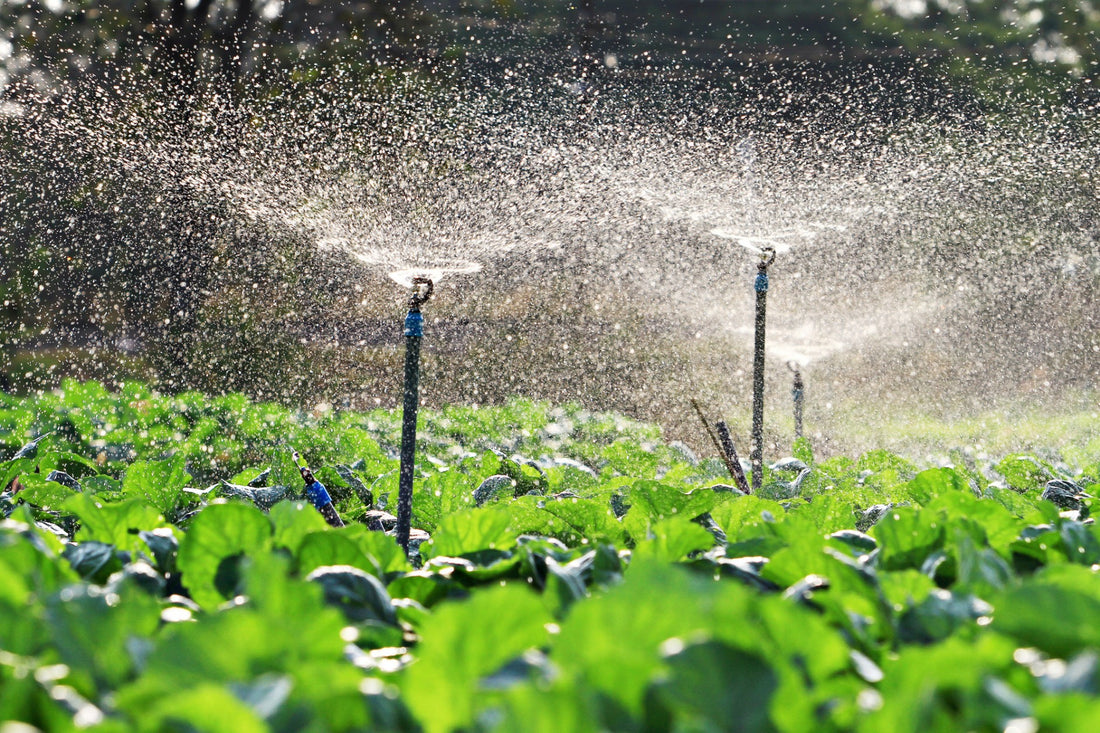Introduction
Sprinkler irrigation is a popular method of providing water to crops and plants by simulating rainfall. This technique involves distributing water through a network of pipes with sprinkler heads that spray water over the agricultural field. Sprinkler irrigation offers several uses and benefits in agriculture, making it an efficient and effective irrigation method. In this article, we will explore the various uses of sprinkler irrigation, types of sprinkler irrigation systems, and the benefits it provides to farmers and the agricultural industry as a whole.
Uses of Sprinkler Irrigation
- Crop Irrigation: Sprinkler irrigation is widely used for crop irrigation in agricultural practices. It provides a controlled and uniform distribution of water over the crops, ensuring adequate moisture for plant growth and development.
- Orchard Irrigation: Orchards, including fruit trees and vineyards, benefit from sprinkler irrigation. The system can be designed to supply water to individual trees or vines, ensuring optimal irrigation coverage for their specific needs.
- Vegetable Irrigation: Sprinkler irrigation is highly suitable for irrigating vegetable crops, such as tomatoes, lettuce, and peppers. The system can be adjusted to meet the water requirements of different vegetables, promoting healthy growth and high yields.
- Nursery and Greenhouse Irrigation: Sprinkler irrigation systems are commonly employed in nurseries and greenhouses for watering seedlings, saplings, and potted plants. The controlled water application helps maintain ideal growing conditions for young plants.
Types of Sprinkler Irrigation Systems
There are different types of sprinkler irrigation systems available, each with its own characteristics and applications. Some of the common types include:
- Fixed Sprinkler System: This type of system consists of permanently installed sprinkler heads that cover a specific area. It is suitable for large agricultural fields and can be designed to provide precise water distribution.
- Portable Sprinkler System: Portable sprinkler systems are movable and can be easily repositioned in different areas of the field. They are beneficial for irrigating irregularly shaped fields or areas with varying crop types.
- Center Pivot System: A center pivot system involves a central pivot point from which the sprinkler arms extend. This type of system is commonly used for large-scale agricultural operations and offers efficient water coverage over a circular area.
- Lateral Move System: Lateral move systems consist of a series of sprinkler heads mounted on a moving lateral line. They are ideal for rectangular or square fields and can be automated for precise irrigation.
Benefits of Sprinkler Irrigation
- Water Efficiency: Sprinkler irrigation allows for precise water application, reducing water wastage compared to other irrigation methods. The controlled spray pattern minimizes runoff and ensures that water reaches the targeted crops or plants.
- Time-Saving: Sprinkler irrigation systems cover a large area efficiently, saving farmers valuable time and labour. Automated systems can be programmed to operate at specific times, providing consistent irrigation without constant manual intervention.
- Flexibility and Uniformity: Sprinkler irrigation offers flexibility in adjusting the water distribution pattern based on crop needs. It provides uniform coverage, ensuring each plant receives an equal amount of water, promoting balanced growth and optimal yield.
- Frost Protection: Sprinkler irrigation can be used for frost protection by creating a layer of ice on the plants. As the water freezes, it releases heat, protecting the crops from freezing temperatures and potential damage.
- Compatibility with Fertilizers: Sprinkler systems can be used to apply fertilizers and other nutrients to the crops simultaneously with irrigation. This method, known as fertigation, enhances nutrient uptake and promotes healthy plant growth.
- Reduction of Soil Erosion: By delivering water in a controlled manner, sprinkler irrigation helps reduce soil erosion. It minimizes the impact of heavy rainfall and prevents the loss of topsoil, preserving the fertility of the land.
Conclusion
Sprinkler irrigation offers a range of uses and benefits in agriculture. It is a versatile and efficient method of delivering water to crops, orchards, vegetables, nurseries, and greenhouses. With various types of sprinkler irrigation systems available, farmers can choose the most suitable option for their specific needs. By utilizing sprinkler irrigation, farmers can conserve water, save time and labor, promote uniform crop growth, protect plants from frost, enhance nutrient delivery, and reduce soil erosion. It is a valuable tool in modern agricultural practices, contributing to sustainable and productive farming.
Buy Irrigation Tools Online from Agri-Route -
To help farmers, Agri Route uses its e-commerce network to provide premium agricultural products at affordable pricing. Agri Route offers farmers a range of choices at reasonable costs, and the final mile delivery is ensured. For farmers in remote locations, access to better agricultural items may be limited, and they may have to pay exorbitant prices for subpar products. A well-known expert with more than 25 years of experience working with farmers all throughout India, Pratyush Pandey, founded the organization. Pratyush has a history of growing businesses as a successful serial entrepreneur. The Agri Route team has been working directly with Indian farmers and dealers for the past ten years or so.
Order any agricultural product from Agri Route to start getting high-quality agricultural goods at a discount. You can reach us by phone at 076201 44503 or make orders online at https://agri-route.com/ if you have any questions. The Agri Route App enables you to order a variety of agricultural products that are readily available nearby.






